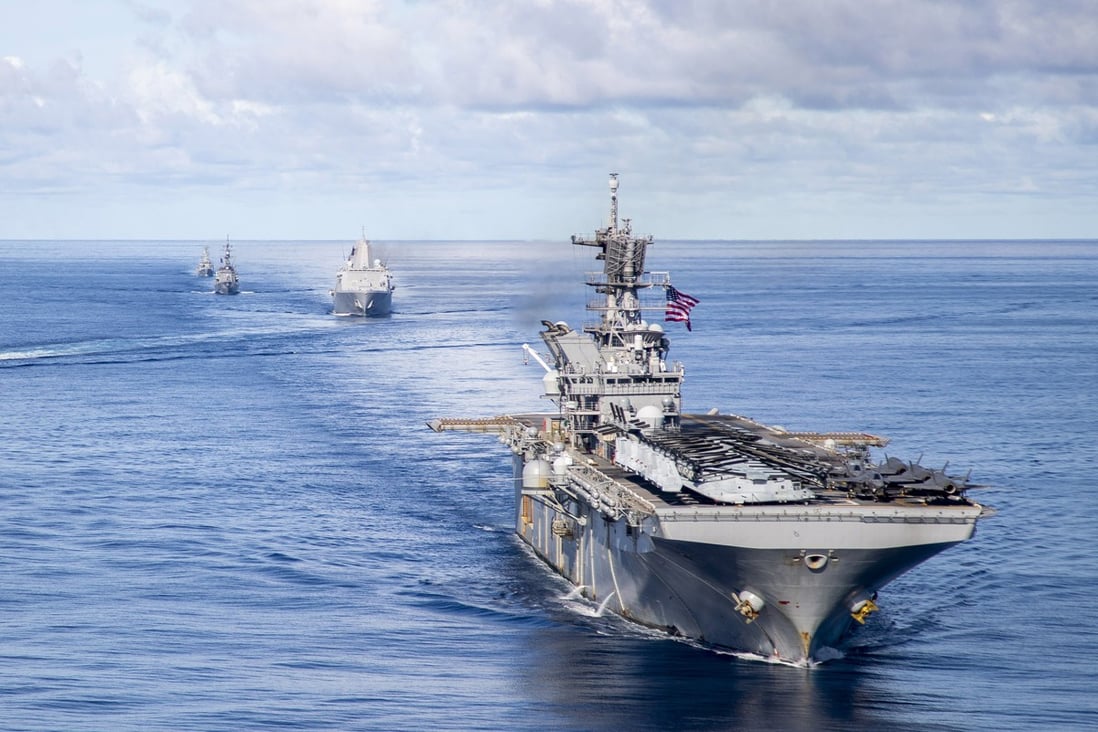
US amphibious assault ships sail alongside Australian and Japanese destroyers and support craft during a joint naval exercise held in the Indo-Pacific last year. Photo: LSIS Ernesto Sanchez/Royal Australian Navy Handout
Australia’s Defence Minister Richard Marles has called for the US to grow its military presence in the Indo-Pacific, warning that a failure to maintain the balance of power in the region could be “catastrophic”.
Speaking in Washington on Monday, Marles, who is also Australia’s deputy prime minister, said the region was currently facing a military build-up “at a rate unseen since World War II” as part of an “intensification of major power competition”.
Marles said the invasion of Ukraine by Russia earlier in the year showed the dangers to regional stability when “one country’s determined military build-up convinced its leader that the potential benefit of conflict was worth the risk”.
“In the years ahead, the US-Australia alliance will not only have to operate in a much more challenging strategic environment in the Indo-Pacific. It will need to contribute to a more effective balance of military power aimed at avoiding a catastrophic failure of deterrence,” he said.
Marles is on his first visit to the US since his centre-left Labor party won power in an election in May. During his visit to Washington, the Australian minister will meet with his US counterpart, Defence Secretary Lloyd Austin
The new Australian administration, under Prime Minister Anthony Albanese, has spoken bluntly about the potential threat to the region from the Chinese government while also attempting to repair diplomatic ties with Beijing.
Marles said on July 3 to Sky News that China was attempting to “shape the world around it in a way that we’ve not seen before”. The Australian defence minister also met with his Chinese counterpart, Wei Fenghe, in Singapore in June.
In his speech to the Centre for Strategic and International Studies, Marles said Australia would take “greater responsibility for its own security,” including investing in the country’s defence capabilities. “This will include capabilities such as longer-range strike weapons, cyber capabilities and area denial systems tailored to a broader range of threats,” he said.
Marles’ speech comes as Australia is sending high-level representatives to the Pacific Islands Forum, including Prime Minister Albanese and Foreign Minister Penny Wong, in an attempt to fend off growing influence by Beijing in the region.
News of the signing of a security agreement between the Solomon Islands and China in April shocked Australia’s foreign policy and defence establishment. At the time, Wong called it Australia’s worst foreign policy failure since World War II.
